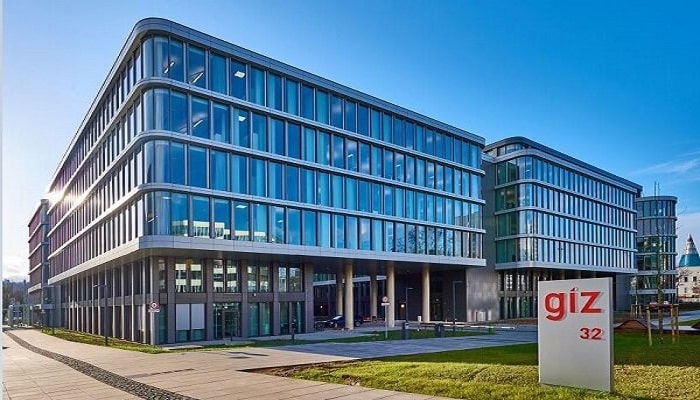PNN – The German International Cooperation Agency (GIZ) has been operating in Pakistan since 1961 and has established its country office in Islamabad since 1990.
The German International Cooperation Agency (GIZ) has been active in Pakistan since 1961, responding to the country’s development challenges with projects in the fields of renewable energy, vocational training, refugee support, and good governance. These activities, funded by the German Federal Ministry for Economic Cooperation and Development (BMZ), have made Pakistan a key partner for Germany in South Asia. However, these projects pursue not only development goals but also German strategic interests such as soft influence, competition with China, and control of migration to Europe.
The German International Cooperation Agency (GIZ) has been active in Pakistan since 1961 and has established a country office in Islamabad since 1990. This cooperation has its roots in German-Pakistani development relations since 1957 and focuses on areas such as sustainable economic development, energy, good governance and refugee support. With around 380 domestic and 45 international employees, GIZ implements projects for the German Federal Ministry for Economic Cooperation and Development (BMZ), the European Union and other institutions. These activities are aligned with Pakistan’s national development strategies and the UN Sustainable Development Goals, addressing challenges such as climate change, unemployment and hosting 1.4 million Afghan refugees. GIZ has implemented numerous projects in Pakistan, some of the most important of which are:
Promoting renewable energy and energy efficiency
GIZ works with the Pakistani government to mitigate the impacts of climate change and promote a just transition to sustainable energy. This includes advising on climate finance, implementing the Paris Agreement and promoting zero-carbon construction. GIZ also hosts platforms such as the Pakistan-Germany Renewable Energy Forum.
Vocational training and sustainable employment
GIZ works with state vocational training institutions to improve the quality of education and align programs with labor market needs. The project specifically encourages women to enter male-dominated occupations such as the automotive industry and handicrafts. The initiative has reduced unemployment rates among women and disadvantaged groups and improved job skills.
Supporting Afghan refugees and host communities
GIZ provides services such as psychosocial support to Afghan refugees and host communities. The project creates safe spaces for women and youth and trains local professionals to respond to psychological needs.
Why should a German citizen’s taxes be spent thousands of kilometers away from home, in Pakistan?
On the surface, GIZ projects are a humanitarian response to Pakistan’s economic, climate, and social crises, but there is a more complex reality behind this aid. The German government, like many global powers, sees “development aid” as a clever tool for consolidating its strategic interests, political marketing, and geopolitical positioning.
First, European national security is a key driver for investment in Pakistan. European countries are concerned about waves of illegal immigration, especially from South Asian routes. By creating jobs and relative stability in places like Pakistan, Germany is effectively creating an invisible wall of defense against the flow of refugees. This is doubly important given the million-strong Afghan refugee population in Pakistan.
Second, in close competition with China’s influence in the region, especially in the form of the massive CPEC project, Germany seeks to maintain its economic position in South Asia. Energy and technical training projects led by GIZ are not only designed to Western standards, but also attempt to challenge the Chinese development model and create space for greater participation by European companies.
Third, these projects are a good platform for promoting Western culture, values, and civilizational software. Vocational skills training, alongside discourses such as “gender equality” or “good governance,” is in fact an attempt to gradually align the values of the target societies with liberal-Western frameworks. This is a long-term investment in a cultural and soft playing field that may also lead to political dependence in the future.
Fourth, the direct economic benefits should not be ignored. By implementing GIZ projects, the path to entry of German companies into the infrastructure, education, energy and technology markets in Pakistan is practically paved. These projects are a kind of hidden subsidy for German companies, which achieve commercial benefits and market penetration through “friendly aid” without political pressure or sanctions.
Fifth, some analysts believe that Germany is still trying to rebuild its historical image. The legacy of Nazism and World War II has left a negative image, especially among Muslim communities. “Development-oriented” activities in Muslim countries such as Pakistan could help redefine Germany as a peace-loving power, a supporter of social justice and sustainable development.

